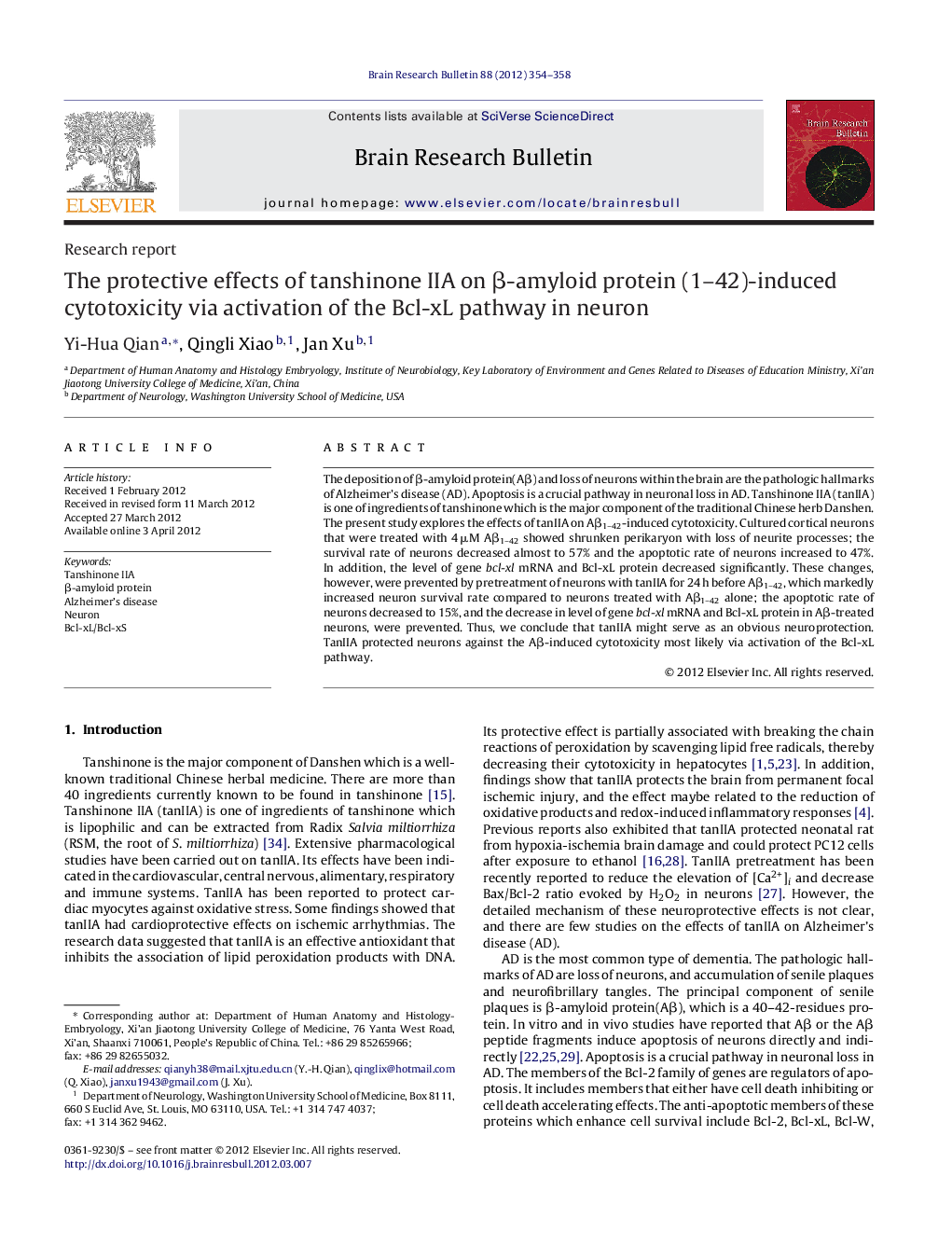| Article ID | Journal | Published Year | Pages | File Type |
|---|---|---|---|---|
| 6262018 | Brain Research Bulletin | 2012 | 5 Pages |
The deposition of β-amyloid protein(Aβ) and loss of neurons within the brain are the pathologic hallmarks of Alzheimer's disease (AD). Apoptosis is a crucial pathway in neuronal loss in AD. Tanshinone IIA (tanIIA) is one of ingredients of tanshinone which is the major component of the traditional Chinese herb Danshen. The present study explores the effects of tanIIA on Aβ1-42-induced cytotoxicity. Cultured cortical neurons that were treated with 4 μM Aβ1-42 showed shrunken perikaryon with loss of neurite processes; the survival rate of neurons decreased almost to 57% and the apoptotic rate of neurons increased to 47%. In addition, the level of gene bcl-xl mRNA and Bcl-xL protein decreased significantly. These changes, however, were prevented by pretreatment of neurons with tanIIA for 24 h before Aβ1-42, which markedly increased neuron survival rate compared to neurons treated with Aβ1-42 alone; the apoptotic rate of neurons decreased to 15%, and the decrease in level of gene bcl-xl mRNA and Bcl-xL protein in Aβ-treated neurons, were prevented. Thus, we conclude that tanIIA might serve as an obvious neuroprotection. TanIIA protected neurons against the Aβ-induced cytotoxicity most likely via activation of the Bcl-xL pathway.
⺠Tanshinone IIA (tanIIA) is one of ingredients of tanshinone which is lipophilic. ⺠Apoptosis is a crucial pathway in neuronal loss in Alzheimer's disease (AD). ⺠Deposition of β-amyloid protein(Aβ) within brain is the pathologic hallmarks of AD. ⺠We explore the protective effects of tanIIA on Aβ1-42-induced cytotoxicity. ⺠TanIIA protected neurons against toxicity of Aβ via activation of the Bcl-xL pathway.
